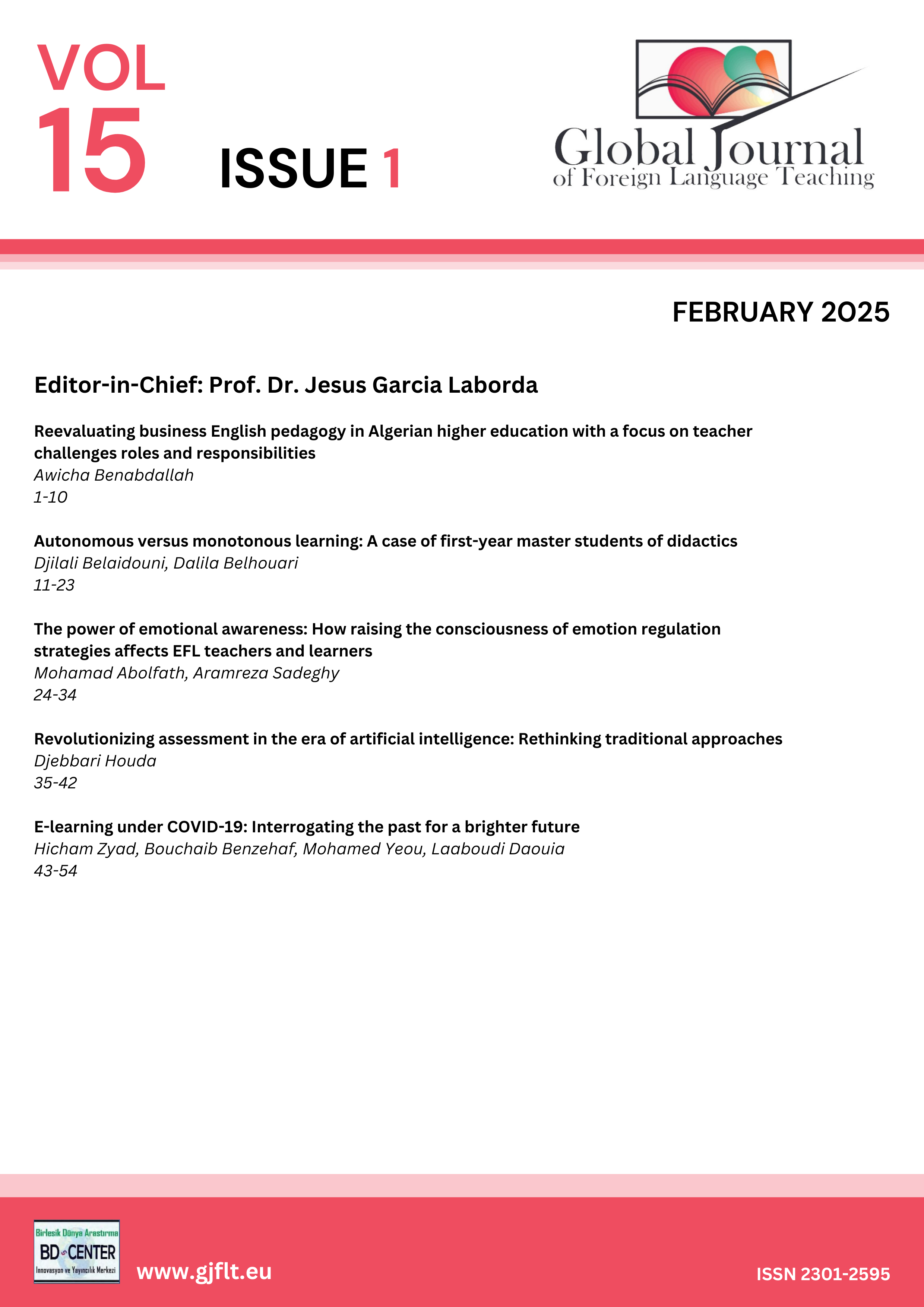Reevaluating business English pedagogy in Algerian higher education with a focus on teacher challenges roles and responsibilities
Main Article Content
Abstract
In Algerian higher education, particularly in the context of English for Specific Purposes (ESP), Business English practitioners face numerous challenges that impact their teaching and the overall learning experience. This study, conducted at the School of Management in Tlemcen, aims to explore the key obstacles in Business English classrooms and highlight the importance of teacher training and professional development in bridging the gap between teaching practices and the evolving demands of a globalized world. Despite the growing need for specialized language instruction, there remains a lack of research addressing these issues in the Algerian context. A semi-structured interview was conducted with five Business English teachers to identify the primary constraints they face. The findings revealed significant challenges related to Needs Analysis and Identification (NAI), materials development, syllabus design, and course structuring. Furthermore, the study uncovered the absence of a clear, unified teaching methodology for Business English. In light of these findings, the study suggests the adoption of an integrated approach to teaching, which focuses on enhancing teachers' skills and fostering collaborative roles between subject specialists and learners to better address both target and learning needs. This research underscores the critical need for a tailored approach to teacher training and methodology development to improve Business English instruction in Algerian higher education.
Keywords: Business English; constraints; high school; roles and responsibilities.
Downloads
Article Details

This work is licensed under a Creative Commons Attribution-NonCommercial-NoDerivatives 4.0 International License.
Authors who publish with this journal agree to the following terms:- Authors retain copyright and grant the journal right of first publication with the work simultaneously licensed under a Creative Commons Attribution License that allows others to share the work with an acknowledgement of the work's authorship and initial publication in this journal.
- Authors are able to enter into separate, additional contractual arrangements for the non-exclusive distribution of the journal's published version of the work (e.g., post it to an institutional repository or publish it in a book), with an acknowledgement of its initial publication in this journal.
- Authors are permitted and encouraged to post their work online (e.g., in institutional repositories or on their website) prior to and during the submission process, as it can lead to productive exchanges, as well as earlier and greater citation of published work (SeeThe Effect of Open Access).
